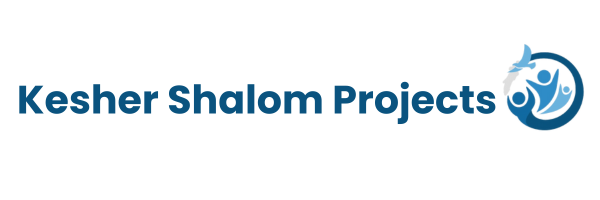Antisemitism Education Must Be Rooted in Jewish Identity and Psychological Insight
In response to the alarming rise in antisemitism, institutions across sectors have begun to offer trainings, issue public statements, and develop educational programs. These are often well-intentioned efforts, created to raise awareness and demonstrate solidarity. But something critical is still missing—something that quietly undermines their depth and long-term impact.
We cannot fight antisemitism with frameworks that are purely historical or political. We need to start asking harder questions. Are these efforts psychologically attuned? Do they help people understand what it actually means to be Jewish? And do they address why antisemitism has such enduring emotional power?
Much of today’s education focuses on history—the Holocaust, pogroms, and legal definitions of hate. While these are essential, they often reduce Jewish identity to trauma. What is frequently left out is the richness of what it means to be Jewish: the values, traditions, worldview, and ethical commitments that have shaped Jewish life and Jewish contributions to society for thousands of years.
Judaism is a tradition rooted in moral responsibility, communal obligation, sacred questioning, and a drive to repair what is broken. These are profound values that have guided generations. And yet, these very traits are often the ones most easily distorted by antisemitic narratives. A commitment to education is reframed as control. Reverence for tradition is labeled backward or tribal. Jewish resilience becomes a target, twisted into the idea of conspiracy or undeserved power.
This is what happens when education is disconnected from psychology. It fails to explain how and why propaganda works. It does not explore how hate can fill emotional voids or how false narratives become compelling in moments of fear, isolation, or identity confusion.
Antisemitism does not thrive on ignorance alone. It spreads because it offers something emotionally satisfying. It gives people a sense of certainty during uncertain times. It offers identity through blame. It creates a false sense of belonging by projecting internal discomfort outward. And this is why antisemitism can take root even among highly educated people. Intellectual knowledge is not enough to protect someone from the psychological pull of projection, tribalism, or moral inversion.
If we do not engage with the emotional and psychological landscape of antisemitism, we will keep reinforcing the illusion that it can be solved with more facts. It cannot. It requires a shift in how we educate, and in who we trust to guide that education.
Information alone will not change minds. That work happens in real-time, in interactive settings, and through facilitated dialogue. People need space to ask uncomfortable questions, reflect on their assumptions, and sit with the emotional tension that comes with confronting bias. And these conversations must be led by someone equipped to hold them—not just someone who knows the material, but someone who understands trauma, group dynamics, emotional defense mechanisms, and cultural complexity.
This is why mental health professionals must be part of the conversation. If we are designing curricula about antisemitism without consulting those who are trained to understand how belief systems take root and how identity is shaped under pressure, we are missing the most important part of the problem. We are also missing the key to healing it.
We need education that restores the full picture of Jewish identity. That teaches not only about persecution, but about purpose. That explores how Jewish ideas have contributed to law, medicine, ethics, education, and democracy itself. That celebrates what it means to live a Jewish life—and explains how and why that life has been mischaracterized and attacked.
This is not about creating guilt. It is about creating understanding. And understanding only happens when we meet people where they are—intellectually, emotionally, and relationally.
The stakes are too high for us to continue offering programs that are well-meaning but incomplete. If we want to protect Jewish communities, strengthen our shared values, and push back against the psychological mechanisms that fuel hate, then we need to rethink how we educate.
That means integrating history with psychology. Trauma with resilience. Jewish pain with Jewish pride.
And it means choosing educators and facilitators who are not only informed, but attuned.
Because without that, we are not educating. We are only informing. And information, without insight, will never be enough.
Because education isn’t just about information—it’s about transformation.
